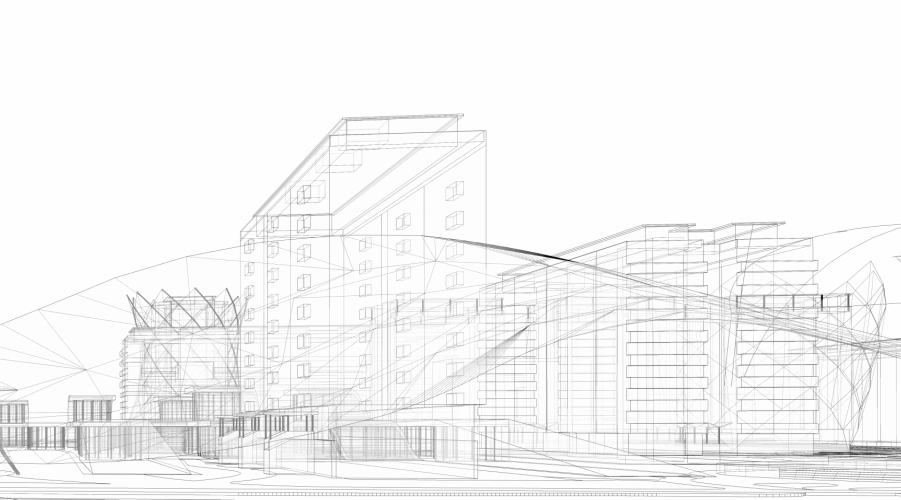
(5 min read)
The Residential Tenancies (Amendment) Act 2025, in effect since 20 June 2025, introduces a temporary, nationwide rent control regime in response to ongoing pressures in the Irish housing market. For the first time, Rent Pressure Zone (RPZ) regulations now apply to all residential tenancies, regardless of location. The Act caps rent increases at 2% per annum or the Harmonised Index of Consumer Prices (HICP) rate of inflation, whichever is lower. It also adjusts rent review timelines for tenancies in newly designated RPZ areas.
While the measures are scheduled to remain in place until 28 February 2026, they represent the first phase of a wider reform strategy, with permanent changes expected to come into effect from 1 March 2026. This update outlines the key legislative provisions, policy rationale, and practical considerations under the current regime.
Summary of Key Legislative Measures
The Residential Tenancies (Amendment) Act 2025 was introduced and passed on an expedited basis as part of the Government’s June 2025 housing reform package. Core provisions include:
Nationwide RPZ Designation
From 20 June 2025, all Local Authority areas across the country are classified as RPZs. This designation remains in effect until 28 February 2026.
Rent Increase Limit
Rent increases are capped at the lower of 2% per annum or the rate of inflation, as measured by the Harmonised Index of Consumer Prices (HICP).
Rent Review Timelines
In newly designated RPZ areas, existing tenancies are subject to a two-year interval before the first rent review may occur. This applies from the tenancy commencement date or the date of the most recent rent review, whichever is later.
Extension of Existing RPZ Provisions
All RPZ provisions previously set to expire on 31 December 2025 have now been extended to 28 February 2026, ensuring a consistent framework applies across all tenancies in the short term.
These updates bring all regions under a unified rent regulation system, reducing inconsistency and preparing the ground for further legislative development.
Policy Context and Legislative Intent
The Government framed the legislation as a temporary but necessary response to Ireland’s ongoing housing supply and affordability challenges. Introducing the Bill, Minister for Housing James Browne TD emphasised that the measures aim to provide “certainty, clarity and stability for the rental sector,” while balancing tenant protections with the need to support ongoing investment in housing supply.
The Act follows the Government’s housing policy statement of 10 June 2025 and is intended as the first step in a two-phase process. It is expected that the second phase, due to take effect from 1 March 2026, will include longer-term structural changes to tenancy law and the regulation of private rental housing.
Debates in both the Dáil and Seanad reflected a mix of support and concern. Some amendments proposed during the debates, such as reducing the rent cap to 0% or extending the RPZ period until 2028, were not accepted. Their rejection may suggest an effort to strike a policy balance between enhanced protection for tenants and the broader need to maintain private sector confidence and housing investment.
Practical Considerations
The temporary nationwide RPZ framework presents several immediate requirements for those managing tenancies and rent reviews:
1. Rent Review Eligibility
Rent reviews must comply with both frequency and rate caps. In newly designated RPZ areas, existing tenancies are subject to a two-year hold before a rent review may be carried out. The following should be carefully assessed at this point:
- The start date of each tenancy
- The date of the most recent rent review (if any)
- Whether current rent levels fall within the allowable increase threshold
The Residential Tenancies Board (RTB) has updated its Rent Calculator to assist in determining allowable rent increases.
2. Documentation and Notice Requirements
It is essential to maintain accurate tenancy records, especially where rent reviews are planned. Statutory notice periods and other requirements under the Residential Tenancies Acts must be adhered to in order for a rent increase to be considered valid. Following the correct process reduces the risk of disputes and helps preserve regulatory compliance.
3. Clear and Consistent Communication
With the RTB undertaking a national information campaign, there is increasing awareness around RPZ entitlements and legislation generally. It is advisable to ensure that all communications relating to rent reviews or tenancy changes are handled with clarity and transparency and supported by appropriate documentation.
Next Steps and Future Reform
The current RPZ regime is expected to operate until 28 February 2026, following which a more permanent framework is anticipated. The forthcoming reforms are likely to include:
- Stronger security of tenure provisions
- Restrictions on “no-fault” terminations
- Differentiated regulation for landlords based on portfolio size (e.g. “larger” landlords with four or more tenancies vs “smaller” landlords with three or fewer)
- New incentives and mechanisms to increase rental supply and attract long-term investment
According to Minister for Planning and Local Government, John Cummins, the upcoming changes are intended to “provide significantly stronger protection for tenants and are finely balanced between the interests of tenants and the need for further private investment in the private rental market”.
Landlords, tenants and practitioners should monitor the drafting of this legislation closely, as it is expected to substantially reshape the structure of residential tenancy regulation in Ireland.
Conclusion
The Residential Tenancies (Amendment) Act 2025 introduces a consistent, temporary rent control regime across the country. Although transitional in nature, the reforms require immediate attention from anyone involved in residential tenancies. Key considerations include rent review timelines, rate cap calculations, and tenant communications.
With further reforms on the horizon for 2026, now is the time to ensure compliance with the current legal framework and prepare for a more regulated future in the Irish rental sector.
For further guidance on these changes or assistance with tenancy reviews, lease planning or compliance assessments, please reach out a member of our Real Estate team.




